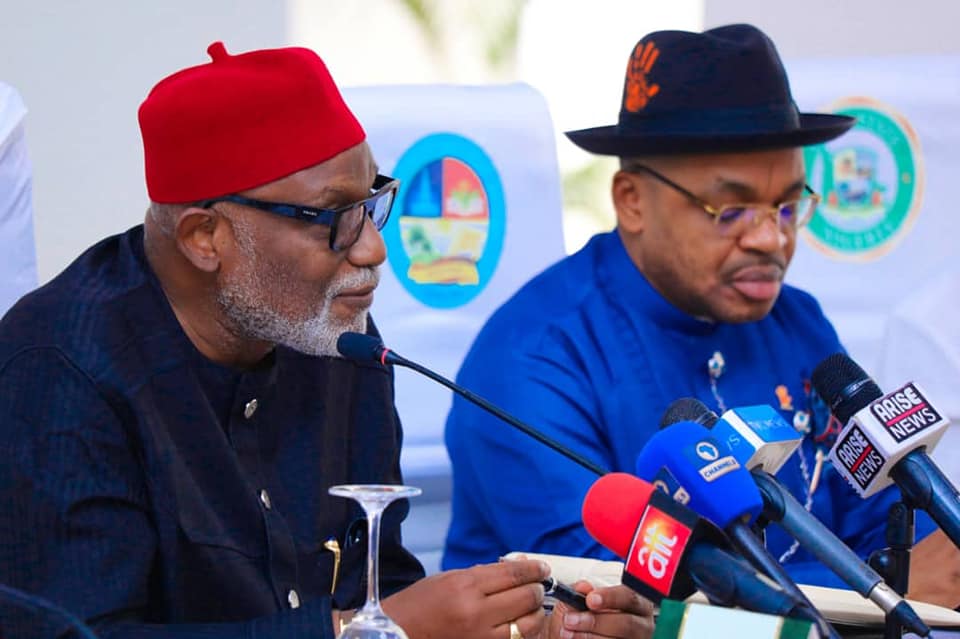Business
Nigeria Owes N35.5trn, As Local Debt Stands At N21trn

The nation’s public debt stock stood at N35.465trillion as at June 30, Director-General of the Debt Management Office (DMO), Ms. Patience Oniha, has disclosed.
Total public debt is composed of the domestic and external debt of the Federal Government, the 36 state governments and the Federal Capital Territory (FCT).
Nigeria’s total public debt stock was N33.107trillion or $87.239billion, as at March 31, 2021.
This indicated a N2.358trillion rise in the debt stock from the end of the first quarter of the year to the end of the second quarter.
A breakdown of the public debt figure under review indicated that that external debt was N13.711trillion, representing 38.66 per cent.
On the other hand, domestic debt was N21.754trillion, representing 61.34 per cent of the total stock.
The Federal Government accounted for N11.828trillion of the external debt and N17.632trillion of the domestic debt.
States and the FCT’s external debt stood at N1.883trillion, with a domestic debt stock of N4.122trillion.
The breakdown of the external debt showed that the bulk of the debt is owed to multilaterals (World Bank Group and the African Development Bank Group), which accounted for 54.88 per cent.
The next highest category is the commercial debt (Eurobonds and Diaspora bonds) which accounted for 31.88 per cent; while bilateral (China, France, Japan, India and Germany) stood at 12.70 per cent.
Promissory Notes represent 0.54 per cent.
Oniha explained that the nation had several benefits from going to source funds which included showcasing Nigeria in a positive light in the international financial markets where large pools of capital are available.
In addition, she said, “The sovereign Eurobonds serve as a benchmark on the back of which several local banks have issued Eurobonds. Amongst them are Zenith Bank, Access Bank, UBA, FBN, Ecobank Nigeria and Fidelity Bank. This window opened by the sovereign enabled these Nigerian Banks raise Tier-2 Capital to meet regulatory requirements and enhanced their capacity to lend to, and, support local borrowers.
“Issuing Eurobonds has been a potent tool for building up Nigeria’s External Reserves. A healthy level of External Reserves supports the Naira Exchange Rate and Nigeria’s sovereign rating.
“Raising funds externally through Eurobonds to finance budget deficits reduces the level of sovereign borrowing in the domestic markets. The benefits of this are many: mitigates the risk of crowding out the private sector (more funds available at moderate rates for other borrowers in the domestic economy).
“The Eurobonds are also listed in Nigeria’s two securities exchanges: The Nigerian Exchange Limited and FMDQ Securities Exchange Limited. This increases the size of these exchanges and diversity of instruments listed.
“The Eurobonds are actually issued as part of approved Government Borrowing Plans, usually in the FGN’s annual budgets, for financing capital projects thereby reducing the infrastructure gap.”
The D-G explained that the issues of rising debt, high debt service to revenue ratio and utilization of borrowed funds were germane.
She said that members of the public should not lose sight of the facts which necessitated borrowing which included, “Huge Infrastructure Deficit , Recession (twice in the last six years), Consecutive Budget Deficits, Low Revenue Base, compounded by dependence on one source – crude oil which prices crashed and at a point, at the peak of the Covid-19 pandemic had no buyers.”
Oniha stressed that Nigerians must challenge themselves and support the Federal Government on the need to raise revenue.
She noted that the 5 per cent tax as a percentage of the Gross Domestic product (GDP) was too poor for Nigeria and that concerted efforts must be made to increase the nation’s revenue.
The D-G disclosed that work has already started on this, adding the Federal Government debt to the Central Bank of Nigeria which was at about N10trillion at the beginning of the process.
She said, “We are working towards recognizing it, getting the proper approvals to include it in the public debt stock. Where we are is to get the necessary approvals to convert it into a tenured debt.”
On the foreign exchange implications for debt service, especially the fall in the value of the Naira, in recent times, the DMO boss said, “we have initiated actions towards managing that risk.”
Business
NCDMB, Dangote Refinery Unveil JTC On Deepening Local Content
Business
Food Security: NDDC Pays Counterpart Fund For LIFE-ND Project
Business
Replace Nipa Palms With Mangroove In Ogoni, Group Urges FG, HYPREP
-
Rivers3 days ago
Four Internet Fraudstars Get Different Jail Terms In PH
-
Business3 days ago
Food Security: NDDC Pays Counterpart Fund For LIFE-ND Project
-
Business3 days ago
PH Women Plan Alternative Stew, Shun Tomato High Prices
-
Sports3 days ago
Nigerian Athletes Serving Doping Bans
-

 Niger Delta3 days ago
Niger Delta3 days agoEx-IYC President Lampoons Atiku’s Presidential Ambition … Declares It Negative Impact On N’Delta
-
News3 days ago
Tinubu Never Stopped 5-year Visa For U S. Citizens – Presidency ?
-

 Featured3 days ago
Featured3 days agoINEC To Unveil New Party Registration Portal As Applications Hit 129
-
Business3 days ago
Industry Leaders Defend Local Content, … Rally Behind NCDMB

